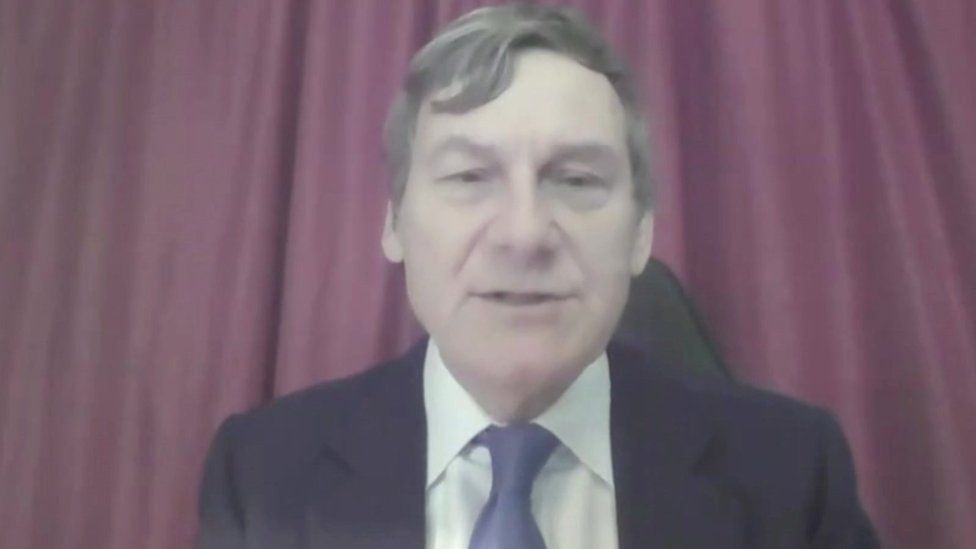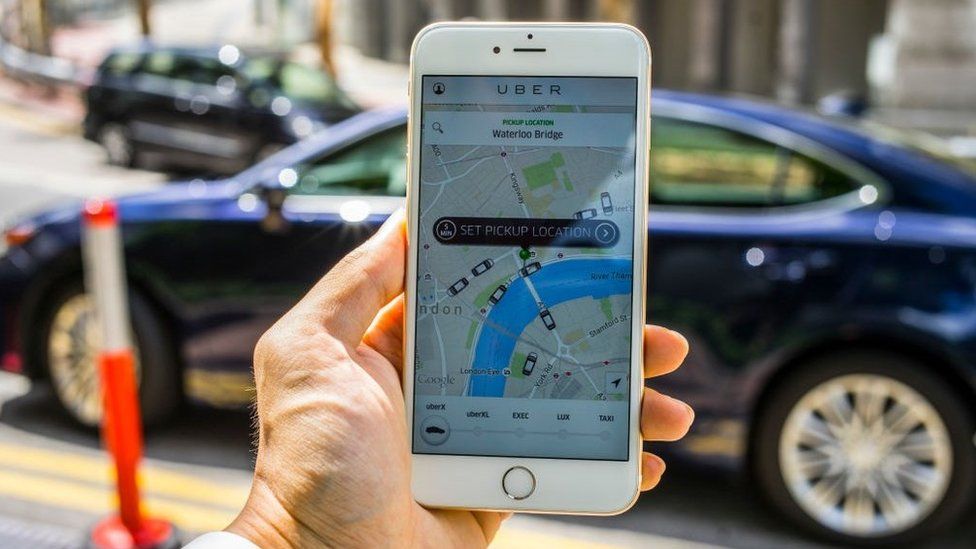The decision could mean thousands of Uber drivers are set to receive minimum wage and holiday pay.

image copyrightJames Farrar and Yaseen Aslam
Uber drivers must be treated as workers rather than self-employed, the UK’s Supreme Court has ruled.
The decision could mean thousands of Uber drivers are set to be entitled to minimum wage and holiday pay.
The ruling could leave the ride-hailing app facing a hefty compensation bill, and have wider consequences for the gig economy.
Uber said the ruling centred on a small number of drivers and it had since made changes to its business.
In a long-running legal battle, Uber had appealed to the Supreme Court after losing three earlier rounds.
Uber is being challenged by its drivers in multiple countries over whether they should be classed as workers or self-employed.
In the US, California voters passed a measure called Proposition 22 that will see freelance workers continue to be classified as independent contractors in November, overturning a landmark labour law passed in 2019.
Former Uber drivers James Farrar and Yaseen Aslam, who originally won an employment tribunal against the ride hailing app giant in October 2016, told the BBC they were “thrilled and relieved” by the ruling.
“I think it’s a massive achievement in a way that we were able to stand up against a giant,” said Mr Aslam, president of the App Drivers & Couriers Union (ADCU).
“We didn’t give up and we were consistent – no matter what we went through emotionally or physically or financially, we stood our ground.”

image copyrightSupreme Court
Uber appealed against the employment tribunal decision but the Employment Appeal Tribunal upheld the ruling in November 2017.
The company then took the case to the High Court, which upheld the ruling again in December 2018.
The ruling on Friday was Uber’s last appeal, as the Supreme Court is Britain’s highest court, and it has the final say on legal matters.
Delivering his judgement, Lord Leggatt said that the Supreme Court unanimously dismissed Uber’s appeal that it was an intermediary party and stated that drivers should be considered to be working not only when driving a passenger, but whenever logged in to the app.
The court considered several elements in its judgement:
- Uber set the fare which meant that they dictated how much drivers could earn
- Uber set the contract terms and drivers had no say in them
- Request for rides is constrained by Uber who can penalise drivers if they reject too many rides
- Uber monitors a driver’s service through the star rating and has the capacity to terminate the relationship if after repeated warnings this does not improve
Looking at these and other factors, the court determined that drivers were in a position of subordination to Uber where the only way they could increase their earnings would be to work longer hours.
Jamie Heywood, Uber’s Regional General Manager for Northern and Eastern Europe, said: “We respect the Court’s decision which focussed on a small number of drivers who used the Uber app in 2016.
“Since then we have made some significant changes to our business, guided by drivers every step of the way. These include giving even more control over how they earn and providing new protections like free insurance in case of sickness or injury.
“We are committed to doing more and will now consult with every active driver across the UK to understand the changes they want to see.”
The Supreme Court’s ruling that Uber has to consider its drivers “workers” from the time they log on to the app, until they log off is seen as a key point.
Uber drivers typically spend time waiting for people to book rides on the app. Previously, the firm had said that if drivers were found to be workers, then it would only count the time during journeys when a passenger is in the car.
“This is a win-win-win for drivers, passengers and cities. It means Uber now has the correct economic incentives not to oversupply the market with too many vehicles and too many drivers,” said James Farrar, ADCU’s general secretary.
“The upshot of that oversupply has been poverty, pollution and congestion.”

image copyrightGetty Images
However, questions still remain about how the new classification will work, and how it affects gig economy workers who work not only for Uber, but also for other competing apps.
Mr Aslam, who claims Uber’s practices forced him to leave the trade as he couldn’t make ends meet, is considering becoming a driver for the app again. But he is upset that it took so long.
“It took us six years to establish what we should have got in 2015. Someone somewhere, in the government or the regulator, massively let down these workers, many of whom are in a precarious position,” he said.
Mr Farrar points out that with fares down 80% due to the pandemic, many drivers have been struggling financially and feel trapped in Uber’s system.
“We’re seeing many of our members earning £30 gross a day right now,” he said, explaining that the self-employment grants issued by the government only cover 80% of a driver’s profits, which isn’t even enough to pay for their costs.
“If we had these rights today, those drivers could at least earn a minimum wage to live on.”
When Uber listed its shares in the US in 2019, its filing with the US Securities and Exchange Commission (SEC) included a section on risks to its business.
The company said in this section that if it had to classify drivers as workers, it would “incur significant additional expenses” in compensating the drivers for things such as the minimum wage and overtime.
“Further, any such reclassification would require us to fundamentally change our business model, and consequently have an adverse effect on our business and financial condition,” it added.
Uber also wrote in the filing that if Mr Farrar and Mr Aslam were to win their case, HM Revenue & Customs (HMRC) would then classify the firm as a transport provider, and Uber would need to pay VAT on fares.
The company has long argued that it is a booking agent, which hires self-employed contractors that provide transport.